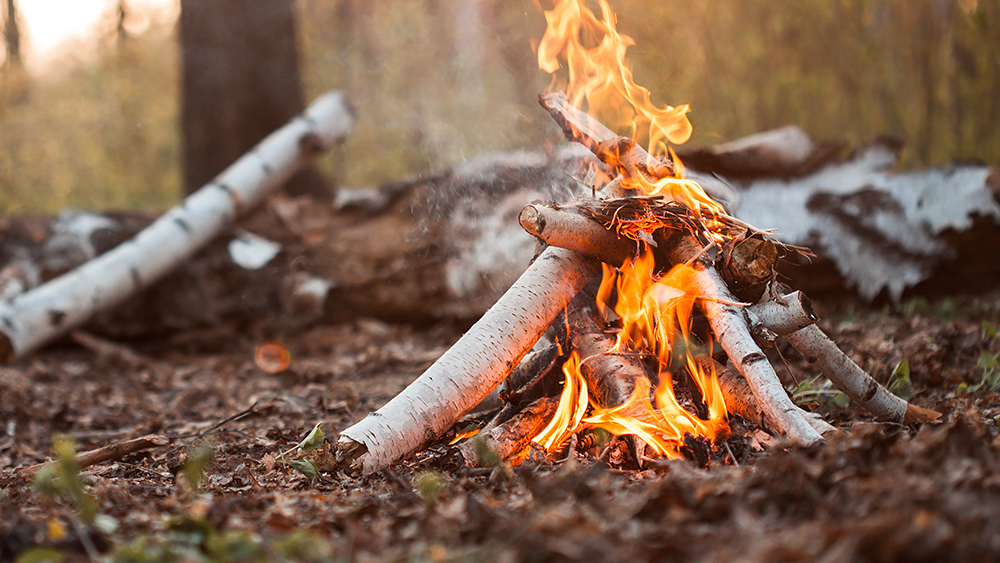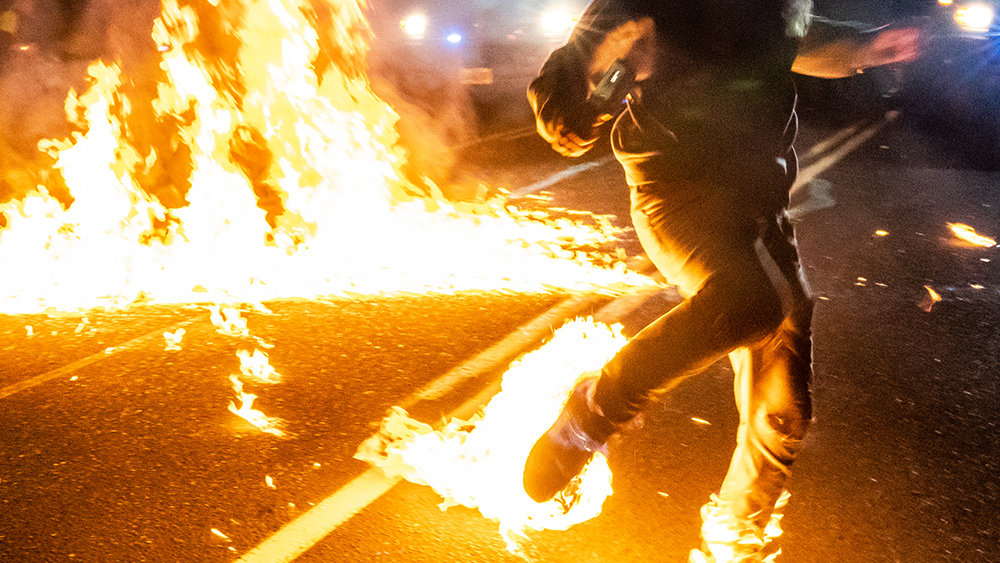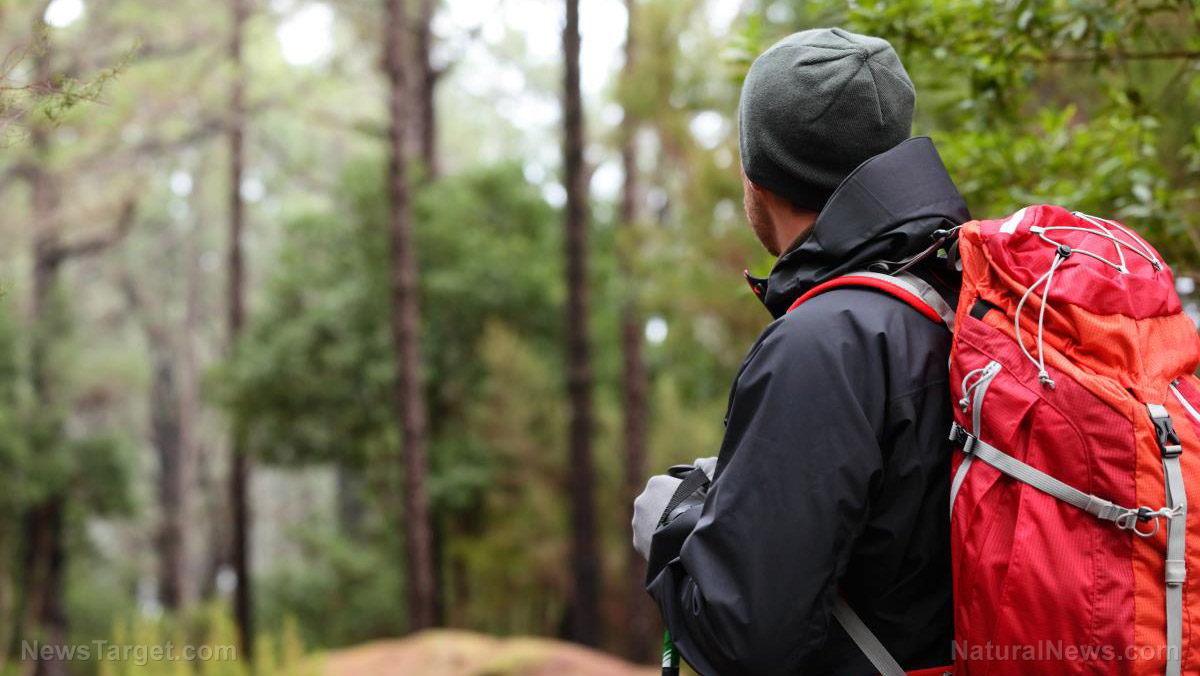
When SHTF, looters may target certain areas that you will want to avoid for your own safety.
If it's safe to bug in, stay inside and away from the places listed below to avoid looters who are after supplies. (h/t to AskAPrepper.com)
Hardware stores and big box stores
If the electricity goes down permanently, people will be looking for a generator to power their fridges and freezers. This means looters may target hardware stores that sell generators.
Big box stores will also be looted because they offer various consumer goods and food products.
Hardware stores will also be targeted for supplies and equipment that would be useful in securing homes after SHTF.
Grocery stores
As evidenced by the Wuhan coronavirus (COVID-19) pandemic, many people don't always have enough supplies of staple food products like rice and flour and other survival essentials like toilet paper.
When SHTF and the supply chain is permanently cut off, the same people who were unprepared during the pandemic will resort to looting the local grocery store to feed their families.
Organized gangs will also target these stores to re-sell their ill-gotten gains on the black market.
Outdoors and sporting goods stores
Many preppers and survivalists have a wide selection of outdoor and camping gear that will be invaluable after disaster strikes.
Those who didn't prepare before SHTF will head to the local outdoor store to stock up on essential equipment. Outdoors and sporting goods stores will also have ammunition and firearms that might attract looters.
Hospitals, clinics, pharmacies, doctors' offices and veterinary clinics
If SHTF, you will need more than a first aid kit to care for family members who are injured or those who have certain medical conditions.
Millions of people require prescriptions daily. If the supply chain is cut off, they will need to find these drugs through other means, like looting.
Another group you will see looting pharmacies, clinics and hospitals are those addicted to drugs and are in need of their next fix.
You may also encounter people with injured family members at home who want to acquire some medical supplies instead of waiting in a post-SHTF triage center.
Convenience stores
Convenience stores might not seem like a worthy target for looters, but the inventory they carry will definitely be valuable after SHTF.
However, looting these stores might be harder than usual because they are usually the sole income provider for a family. This means they are also usually well-defended.
In most cases, the families running the local convenience store will live directly above or adjacent to it and defend it as they would their own home.
Warehouses or distribution centers
Online store distribution centers or warehouses will be a prime target during a survival scenario.
Most warehouses and distribution centers are also full of food and supplies along with security that will be nonexistent after SHT.
Gun stores
It may seem dangerous to loot a gun store because the staff might already have access to firearms, but after SHTF, they might not stand a chance against a mob of already armed looters.
When disaster strikes people will want to defend themselves and raiding the local gun shop will be one way to go about it.
Gas stations
If the power grid goes down permanently, there will still be ways to extract the fuel from the underground storage tanks at the local gas station. If SHTF, there's a chance that many organized groups of looters will try to control this critical resource.
As proven in the lead-up to hurricanes, many people will suck the tanks dry at all the gas stations within the area.
If the power suddenly went out, it would be a different story. There would be thousands of gallons of fuel that can be accessed by someone clever enough to think of ways to extract it. (Related: Survival essentials: 10 Emergency supply tips for preppers.)
Other areas to avoid after SHTF
Here are other areas to avoid if you're worried about encountering looters after SHTF:
Automotive shops
Looters may target auto shops if they need parts for their vehicles or if they want to re-sell car parts on the black market.
Fire stations
Looters may ransack fire stations if they need food, supplies and clothing. They might also target it to access tanks with hundreds of gallons of water.
Manufacturing facilities
Manufacturing facilities are another possible target because they may have batteries, first aid supplies, fuel, tools and other useful items.
Marinas
Marinas will have abandoned boats with supplies like communication equipment, fishing equipment, emergency rations and even guns and ammo.
Office buildings
Office buildings will have break rooms with vending machines. Looters may also check desks for snacks and small tools.
The janitor’s closet will also have cleaning supplies and there may be fire extinguishers in most rooms.
Pawn shops
Looters may search pawn shops for weapons, ammo and other miscellaneous gear like working electronics such as walkie-talkies or a HAM radio.
Pet stores
People with pets may loot pet stores for supplies like pet food and pet medication, along with other pet supplies like toys and treats.
Restaurants
Restaurants will be another target for looting because they will contain various cans or bags of food.
Schools
Schools also contain an assortment of supplies for looting, like cleaning supplies, fire extinguishers, first aid kits and tools.
Looters might also search the cafeteria for food and other supplies.
It's best to prepare for looting during large-scale and long-term localized disasters like earthquakes, floods, hurricanes, or tornados. Most of the time, this kind of looting will be conducted by those who want to profit from the disaster.
When the disaster is on a national or global scale and help is delayed or not coming at all, expect the looting to be widespread and involve people who, under normal circumstances, would be law-abiding citizens.
Before SHTF, learn where these looters may strike so you can avoid these dangerous areas.
Watch the video below to learn about three mistakes you should avoid when prepping for an SHTF scenario.
This video is from the Survival 101 channel on Brighteon.com.
More related stories:
12 Things you need to survive a power grid collapse.
Personal safety and survival: 15 Things to do after an EMP attack.
20 Wilderness survival tips that might save your life after SHTF.
Sources include:
Please contact us for more information.





















